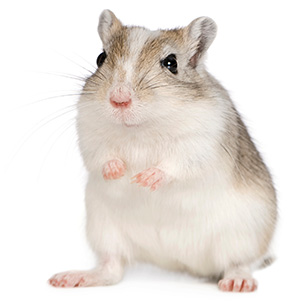Properly Caring for Your Hamster/Gerbil
Properly Caring for Your Hamster/Gerbil
Proper care and diet plans are the essential elements that contribute to the happy and healthy existence of any pet. Hamsters and Gerbils are no exceptions to this need. So if you want your hamster or gerbil to live a long and happy life there are some basic guidelines that you are going to have to follow.
The following are some guidelines that can be used to successfully care for hamsters and gerbils:
Doing some research to find the most suitable and complete nutritional foods to include in the diet plan of the hamster or gerbil is one of the first steps to embark upon. With proper diet plans in place the pet will at the very least be well fed. You need to pay attention to the weight and eating habits of your hamster or gerbil as well. You need to look for signs of weight loss or weight gain. If the hamster or gerbil is not eating or is eating all of its food but still losing weight, you should probably change their diet. At the same time, if your gerbil or hamster is putting on an excessive amount of weight, you should probably change their diet plan.

Using hay in the cage or carrier that doubles as its dwelling place, the hamster or gerbil will be very happy to fine tune their natural foraging skills and this will keep the hamster or gerbil occupied and out of mischief and boredom. Choosing the variety of hay that contains immature seed heads would be an added treat for the pet. Another thing to consider is putting wood chips in the cage as well as wooden
blocks for the hamster or gerbil to chew on to maintain their teeth. As well, this will help to keep the hamster or gerbil from chewing on the cage which can be quite irritating.
Surprisingly treats and veggies also make up good items to encourage interaction with these small mammal pets. However one should be careful when attempting to introduce such items as treats as too much can eventually create and obese pet and it can also give the creature a stomach ache when suddenly introduced into the hamster’s or gerbil’s diet. Therefore with any of these items introduced the pet owner must be sure it is done in very small portions and is maintained as a treat and not as part of the main diet plan. Plus, this will let the hamster or gerbil know that it is a special treat and they will appreciate it more. The treat will lose its value as a treat if it is given to the animal on a regular basis.
Keeping the cages clean with fresh outlays of hay and other appropriate bedding material would also be a good idea, as the urine of these animals tends to be strong smelling. Also the pet owner should not be overly alarmed if the small mammal pet eats its own poop form time to time as this is a very natural behavior pattern.
You should also seriously consider getting your hamster or gerbil an exercise wheel because these small little furry creatures have a great deal of energy. As well, exercise is important for the health of your hamster or gerbil and it will help keep them healthy and keep their weight under control.
Let your pet out from time to time. Keeping the hamster or gerbil locked in the cage on a constant basis will begin to make the animal feel like a prisoner sooner or later. Let them out to explore sometimes, you can even get little balls that they can run on the floor in. These balls get rid of the fear of the animal getting lost or even worse, stepped on.
As you can see from the guidelines above, most of the care needed for a hamster or a gerbil is basically common sense. These small animals are awesome as pets, especially is it is your first pet or you are restricted with space for a pet. As long as you take proper care of your hamster or gerbil you are sure to have many happy years with them where you can create many lasting memories.